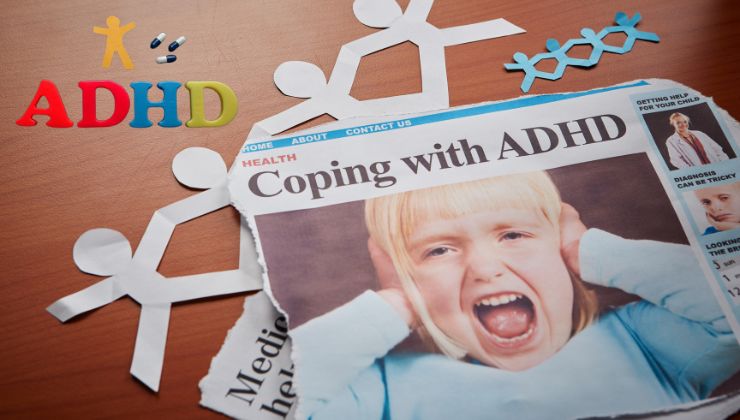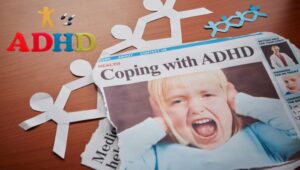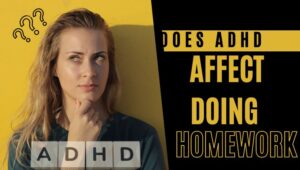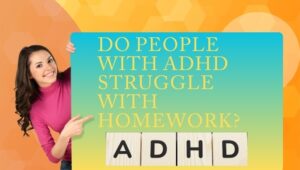Attention Deficit Hyperactivity Disorder (ADHD) is a neurodevelopmental condition that affects individuals’ ability to regulate attention and manage impulses. Can ADHD girls do well in school? While commonly associated with boys, ADHD in girls often goes undiagnosed or misdiagnosed due to gender-specific manifestations. This article delves into the challenges ADHD girls face academically and explores strategies for success.
Did Girls Go to School in the 1900s?
Table of Contents
Introduction
Definition of ADHD
ADHD is a neurobehavioral disorder characterized by persistent patterns of inattention, hyperactivity, and impulsivity. Understanding its nuances is crucial for addressing the unique challenges faced by girls with ADHD.
Prevalence in Girls
While boys are more commonly diagnosed with ADHD, research suggests that girls exhibit different symptoms, making identification challenging. Exploring the prevalence sheds light on the underdiagnosis issue.
Overview of Academic Challenges
Girls with ADHD often encounter academic hurdles, including difficulty focusing, organizing tasks, and completing assignments. Recognizing these challenges is the first step toward effective intervention.
Understanding ADHD in Girls
Gender Differences in ADHD
ADHD manifests differently in girls, with inattention being more prevalent than hyperactivity. Understanding these gender-specific patterns is essential for accurate identification.
Social and Academic Impacts
The impact of ADHD extends beyond academics, affecting social interactions and self-esteem. Exploring the broader implications aids in developing comprehensive support strategies.
Identifying Symptoms in Girls
Recognizing ADHD symptoms in girls requires a nuanced approach. Highlighting specific indicators facilitates early intervention and tailored support.
School Environment and ADHD
Traditional Classroom Challenges
Traditional classroom settings may exacerbate ADHD symptoms. Investigating the challenges helps in crafting inclusive learning environments.
Importance of Support Systems
Support systems within schools play a pivotal role in mitigating the impact of ADHD. Examining the significance of these systems is crucial for academic success.
Individualized Education Plans (IEPs)
Customizing education plans for ADHD girls ensures targeted interventions. Exploring the efficacy of Individualized Education Plans is essential in addressing specific needs.
Academic Strategies for ADHD Girls
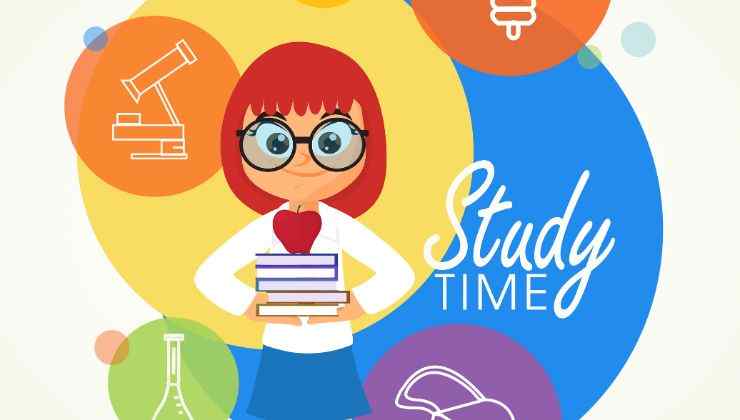
Tailoring Learning Styles
Recognizing diverse learning styles is crucial for adapting teaching methods to the needs of ADHD girls. Exploring personalized approaches enhances academic engagement.
Utilizing Multisensory Approaches
Multisensory learning accommodates different learning preferences. Investigating its effectiveness in ADHD education promotes inclusive teaching practices.
Incorporating Technology in Education
Leveraging technology assists in creating dynamic learning environments. Examining the role of tech tools in supporting ADHD girls enhances educational outcomes. Can ADHD girls do well in school?
Emotional Well-being and Academic Performance
Impact of Emotional Regulation on Learning
Emotional well-being directly influences academic performance. Analyzing the interplay between emotions and learning aids in holistic support development. Can ADHD girls do well in school?
Coping Mechanisms for Stress and Anxiety
ADHD girls may experience heightened stress and anxiety. Identifying effective coping mechanisms contributes to a positive academic experience.
Building Self-Esteem
Fostering self-esteem is crucial for academic motivation. Exploring strategies to build confidence empowers ADHD girls to navigate challenges with resilience.
Parental and Teacher Involvement
Importance of Communication
Open communication between parents, teachers, and students is fundamental. Examining communication strategies enhances collaborative efforts for academic success. Can ADHD girls do well in school?
Collaborative Strategies for Success
Aligning parental and teacher strategies optimizes support. Investigating collaborative approaches fosters a cohesive environment for ADHD girls.
Recognizing and Addressing Challenges Early
Early identification of challenges allows for proactive intervention. Exploring methods for early recognition contributes to better outcomes for ADHD girls.
ADHD Medication and Academic Performance
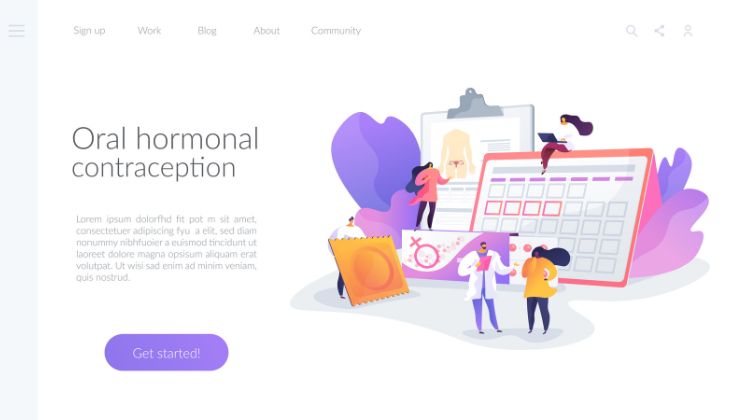
Role of Medication in Academic Focus
Medication is a common ADHD management tool. Analyzing its impact on academic focus provides insights into its role in educational success. Can ADHD girls do well in school?
Potential Side Effects and Considerations
Understanding potential medication side effects is crucial. Exploring considerations for balancing medication with other strategies ensures holistic support. Can ADHD girls do well in school?
Balancing Medication with Other Strategies
Integrating medication with non-pharmacological approaches enhances effectiveness. Investigating the synergy between different strategies optimizes academic performance.
Case Studies and Success Stories
Real-life Examples of ADHD Girls Excelling
Examining success stories provides inspiration for others. Analyzing real-life examples highlights the potential for academic achievement. Can ADHD girls do well in school?
Identifying Factors Contributing to Success
Understanding the factors behind success aids in replicating strategies. Investigating commonalities in success stories informs support development.
Inspiration for Parents, Teachers, and Students
Inspiring various stakeholders fosters a supportive community. Exploring success stories offers motivation for continued efforts in ADHD education. Can ADHD girls do well in school?
Neurodiversity and Inclusive Education
Shifting Perspectives on ADHD
Promoting neurodiversity challenges stigmas associated with ADHD. Investigating the paradigm shift contributes to inclusive educational practices.
Creating Inclusive Learning Environments
Inclusive education benefits all students, including those with ADHD. Exploring strategies for creating inclusive spaces enhances academic experiences. Can ADHD girls do well in school?
Celebrating Neurodiversity in Schools
Celebrating differences fosters an inclusive school culture. Examining initiatives to celebrate neurodiversity contributes to a supportive environment.
Addressing Stigmas and Misconceptions
Common Myths About ADHD in Girls
Dispelling myths is crucial for combating stigma. Examining common misconceptions facilitates a more accurate understanding of ADHD.
Dispelling Stereotypes in Education
Addressing stereotypes promotes a fair educational environment. Investigating stereotypes’ impact on ADHD girls aids in fostering inclusivity.
Promoting Understanding and Empathy
Fostering empathy enhances support for ADHD girls. Exploring ways to promote understanding contributes to a compassionate educational community.
Strategies for Time Management
Teaching Time Management Skills
Effective time management is a key skill for academic success. Analyzing strategies to teach time management aids ADHD girls in organizing their workload. Can ADHD girls do well in school?
Creating Structured Routines
Structured routines provide stability for ADHD girls. Investigating the role of routines in academic performance enhances planning and organization.
Balancing Academic and Non-Academic Activities
Maintaining balance is crucial for overall well-being. Exploring strategies to balance academic and non-academic pursuits contributes to a holistic approach.
Specialized ADHD Programs and Resources
Availability of Specialized Educational Programs
Specialized programs cater to ADHD-specific needs. Investigating the availability and effectiveness of these programs aids in informed decision-making. Can ADHD girls do well in school?
Community Resources for ADHD Support
Community resources play a vital role in support networks. Exploring available resources enhances the accessibility of support for ADHD girls.
Online Platforms and Tools
Technology facilitates access to resources. Investigating online platforms and tools for ADHD support contributes to a technologically integrated approach.
The Role of Neurodivergent Advocacy
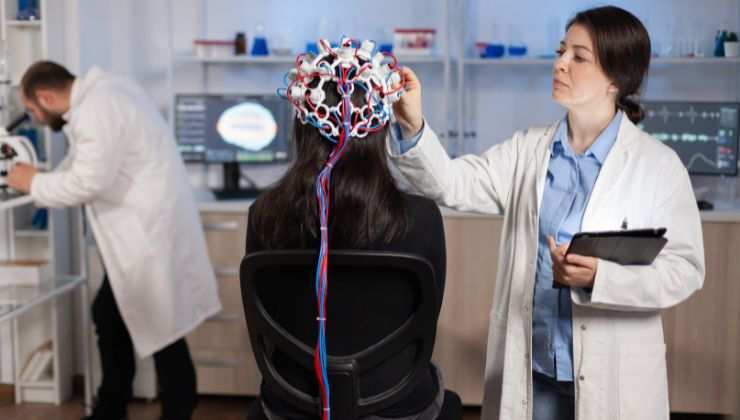
Empowering ADHD Girls Through Advocacy
Advocacy empowers individuals with ADHD. Analyzing the role of advocacy in empowering girls contributes to a more equitable educational landscape.
Promoting Inclusivity in Educational Policies
Inclusive policies support neurodivergent students. Investigating the impact of policies on inclusivity enhances educational opportunities for ADHD girls. Can ADHD girls do well in school?
Amplifying Voices for Systemic Change
Amplifying voices catalyze systemic change. Exploring the impact of collective advocacy contributes to a more inclusive and supportive educational system.
Impact of ADHD on Higher Education
Transitioning to College with ADHD
Transitioning to higher education poses unique challenges. Analyzing the impact of ADHD on the college experience aids in preparation and support.
Accessing Support Services in Higher Education
Support services in higher education are crucial for success. Investigating available services enhances preparedness for ADHD individuals entering college.
Navigating Challenges Successfully
Navigating challenges fosters resilience. Exploring strategies for overcoming hurdles in higher education contributes to successful academic journeys. Can ADHD girls do well in school?
The Intersectionality of ADHD in Girls
Exploring Additional Factors (e.g., Socioeconomic Status)
Understanding intersectionality adds depth to ADHD considerations. Investigating additional factors affecting ADHD girls provides a comprehensive perspective.
Addressing Overlapping Challenges
Overlap with other challenges compounds difficulties. Analyzing the intersection of ADHD with other factors aids in tailored support development.
Tailoring Strategies for Individual Needs
Individualized approaches are essential. Exploring strategies tailored to specific needs enhances the effectiveness of interventions.
Future Prospects and Research
Ongoing Research on ADHD in Girls
Research continually informs ADHD understanding. Investigating ongoing studies contributes to evolving strategies for supporting ADHD girls. Can ADHD girls do well in school?
Emerging Strategies and Interventions
New strategies continually emerge. Analyzing innovative approaches enhances the adaptability of support for ADHD girls.
The Potential for Improved Educational Outcomes
Optimism surrounds future educational outcomes. Exploring the potential for improvement encourages continued efforts in ADHD education.
Teacher Training on ADHD Awareness
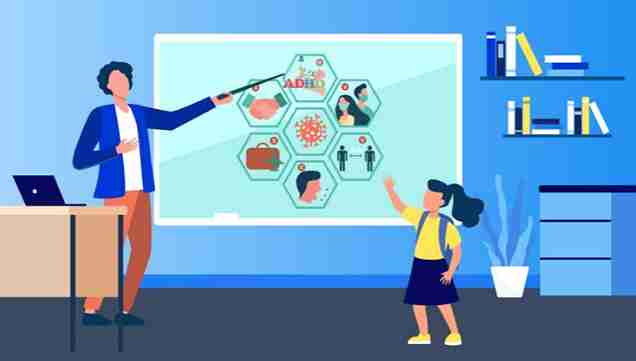
Integrating ADHD Awareness in Teacher Education
Teacher awareness is pivotal for support. Investigating the integration of ADHD education into teacher training enhances overall awareness. Can ADHD girls do well in school?
Recognizing and Addressing ADHD in the Classroom
Early recognition in classrooms is vital. Exploring strategies for teachers to identify and address ADHD contributes to a proactive educational environment.
Promoting Inclusive Teaching Practices
Inclusivity benefits all students. It investigates teaching practices that promote inclusivity aid in creating supportive classrooms.
Collaboration Between Health and Education Systems
Bridging Gaps Between Medical and Educational Approaches
Collaboration is key for holistic support. Examining collaboration between health and education systems enhances comprehensive care.
Creating Holistic Support Systems
Holistic support considers both medical and educational aspects. Investigating the creation of integrated support systems optimizes outcomes for ADHD girls. Can ADHD girls do well in school?
Enhancing Collaboration for Optimal Outcomes
Effective collaboration yields optimal outcomes. Exploring ways to enhance collaboration between systems contributes to a seamless support network.
Success Metrics and Monitoring Progress
Establishing Measurable Goals for Academic Success
Measurable goals provide clarity. Investigating the establishment of academic success metrics aids in focused interventions.
FAQs
Can ADHD girls be academically successful without medication?
Yes, many ADHD girls thrive academically through a combination of alternative therapies, support systems, and effective coping mechanisms. Can ADHD girls do well in school?
How can educators support ADHD girls in the classroom?
Educators can support ADHD girls by undergoing training, creating inclusive environments, and understanding individual learning needs. Can ADHD girls do well in school?
Are there successful women who had ADHD in their school years?
Absolutely, many successful women attribute their achievements to effective coping strategies and a supportive environment during their school years. Can ADHD girls do well in school?
How can parents encourage open communication with their ADHD daughters?
Open communication is fostered through active listening, understanding, and creating a non-judgmental space where girls feel comfortable expressing themselves. Can ADHD girls do well in school?
Is ADHD more challenging to diagnose in girls compared to boys?
Yes, ADHD in girls is often underdiagnosed or misdiagnosed due to subtler symptoms, leading to delayed intervention. Can ADHD girls do well in school?
Conclusion Can ADHD girls do well in school?
In conclusion, ADHD girls can do well in school with the right support, understanding, and resources. By dispelling myths, fostering a supportive environment, and celebrating successes, we pave the way for a future where ADHD girls thrive academically.
